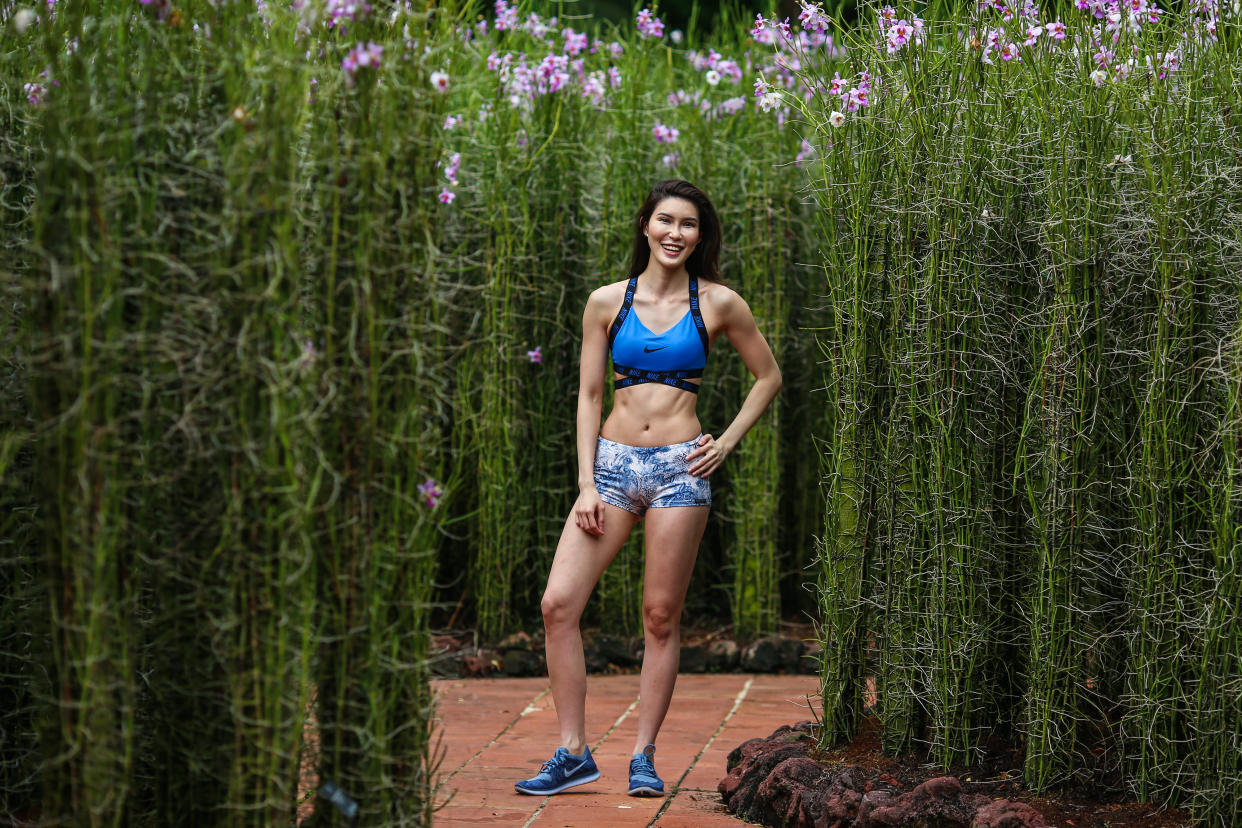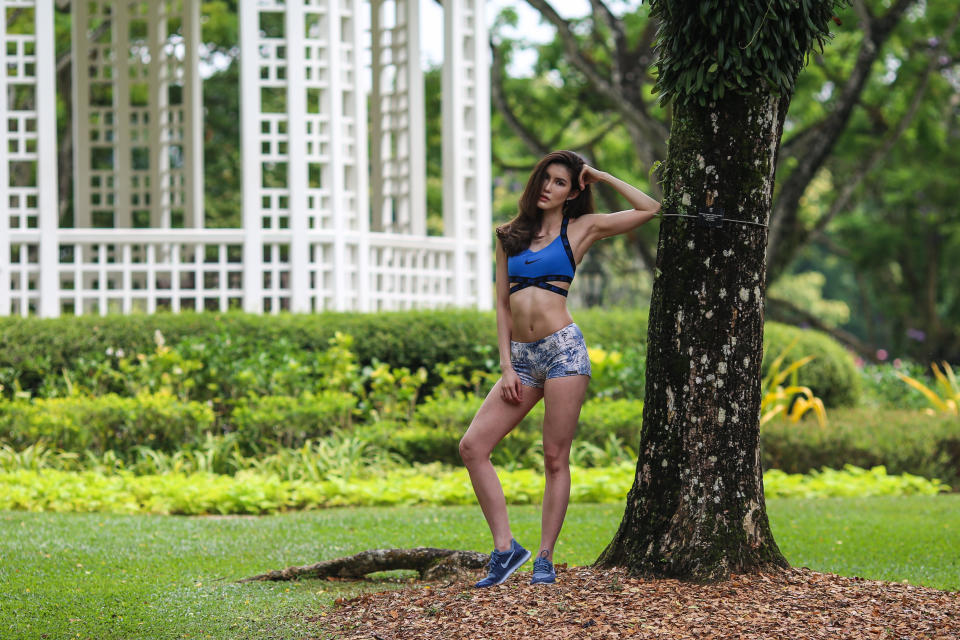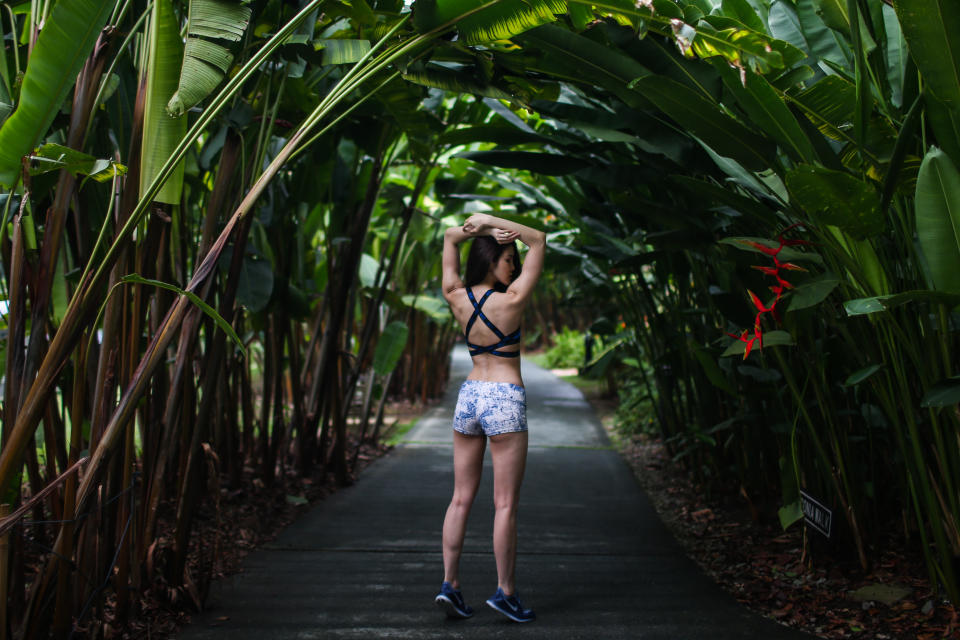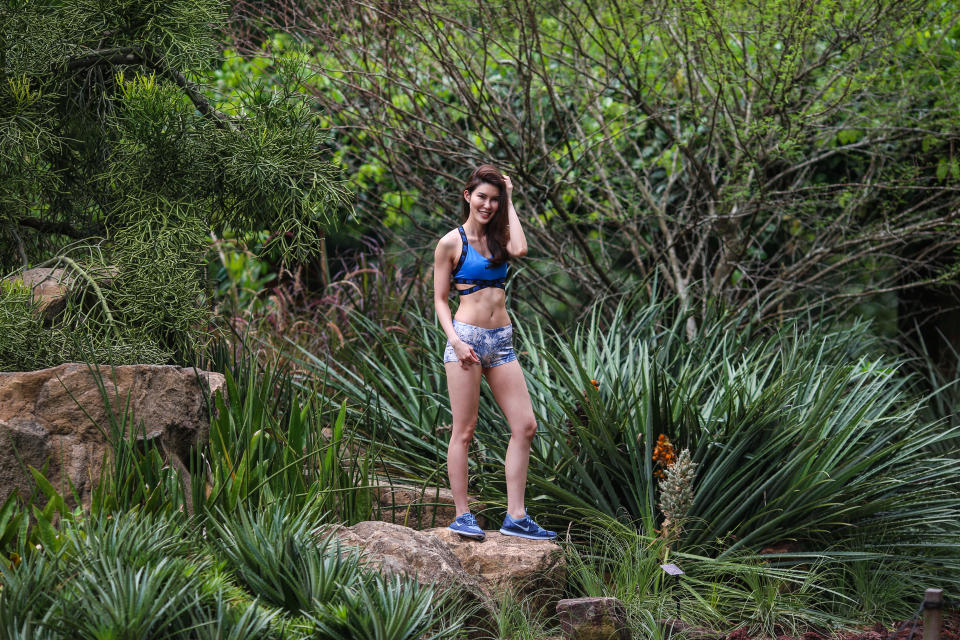Singapore #Fitspo of the Week: Magdalene Liau

Life goes beyond the digits on the scale and your body is capable of so much more! Yahoo’s #Fitspo of the Week series is dedicated to inspirational men and women in Singapore leading healthy and active lifestyles. Have someone to recommend? Hit Cheryl up on Instagram or Facebook!
Name: Magdalene Liau (@thisdoclifts)
Age: 31
Height: 1.66m
Weight: 49kg
Occupation: Medical Doctor (Aesthetic Medicine)
Status: Attached
Diet: A balanced diet of carbs, lean protein, healthy fats and fibre daily, with healthy substitutes for indulgence such as froyo instead of ice cream. (Did someone say McNuggets though?)
Exercise: Three to four times a week (or as often as the body allows) of weights, kettlebells, calisthenics, high-intensity interval training (HIIT) or Muay Thai.
Q: When did you start going to the gym?
A: I started going to the gym when I was in Ireland studying for my medicine degree. Being away from home for the first time, I was lonely and at times, anxious. I felt alone in a foreign land. Stuffing my face with snacks till my stomach hurt didn’t help.
So my fitness journey started out as an unhealthy way of running away from the feelings I was dealing with. I would spend extended hours at the gym every day on the treadmill, elliptical trainer or bike, either as a form of distraction or to burn off the extra calories I had consumed. It was a tough few years.
The endorphins I got from each workout did help me feel better, but eventually I managed to cope with the negative feelings over time, and the workouts became a part of my lifestyle as opposed to an emotional crutch.
Was that the period when you felt least confident about yourself?
Yes, I probably felt the least confident when I was studying and living abroad. I didn’t exactly have low self-esteem, but I was unsure of many things – like how to pay for bills, look for accommodation, open a bank account, etc.
It felt like a steep jump because all of a sudden I had to learn how to be a grown-up. On top of that, I felt like an awkward outsider interacting with people who weren’t from the same background. That made me somewhat anti-social. I would stay away from social interaction as far as possible, as I was afraid people wouldn’t like me or understand me.
How did you overcome that?
I figured that I had to make the most out of a situation that I couldn’t change, and I slowly began to realise the importance of self-care. These changes didn’t happen overnight, but I started exercising regularly and eating better. I made it a point to get enough sleep when I could. I started reading a lot, including self-help books, and even took up dance classes in my free time.
In hindsight, I realised it gave me the confidence to be more social, and I found myself being involved in various activities in class and in church. I would even strike up random conversations with strangers like shopkeepers. It felt good to put a smile on someone else’s face.

Lifting is a big part of your exercise regime now. When did you discover lifting?
I first started lifting five years ago. As I tend to get bored easily, learning something new and different keeps me going. Seeing other people at the gym train using various weights equipment and machines got me curious. But I was intimidated to try them out for myself for fear of looking like an idiot. Eventually, engaging a personal trainer helped set the foundation for my passion for resistance training.
I like lifting because, like learning any new skill, it makes you feel good. Seeing yourself progress is incredibly satisfying. As you start to accomplish basic moves and then progress, that gives you little building blocks of confidence. I started accomplishing things I didn’t think I could do.
I remember the rush of endorphins when I did my first unassisted pull up which I learnt in less than a week – that happiness and sense of achievement spills over to other aspects of your life. I feel more confident at work, interacting with others and when meeting new people. Where I was once intimidated by the weights area in a gym dominated by testosterone-fuelled, grunting men, I now know I can hold my own despite the fact they are still dominated by guys.
Why shouldn’t girls be afraid of lifting?
I find that the best way I got leaner was when I became more mindful about my diet and focus on building muscle. Building muscle increases your resting metabolic rate, which means that you’ll burn more calories even when you’re not working out.
Women in particular won’t bulk up the way men do, simply because our bodies are not physiologically designed that way. Women have lower levels of testosterone than men, which makes it harder for women to build muscle tissue. So you don’t have to worry about professional bodybuilding type of
workouts. Simple, weight-bearing exercises with free weights, machines or your own bodyweight are good enough.
How did lifting change your body positively?
When I first started lifting and packing on some muscle, I didn’t realise my body was changing until people started commenting on my muscle tone and definition. I was told I looked better and healthier than before. More importantly for me, I felt my posture improved – I was standing taller and more upright, as compared to previously with hunched-forward, rounded shoulders.
My colleagues thought I was obsessed because I would often head to the gym immediately after 30-hour work shifts at the hospital, but I felt like I had more energy to sustain me.

What are your fitness goals now?
I’ve had many fitness goals over the years and it still changes from time to time – mainly to become fitter, leaner or learn a new skill. But my main fitness goal now is simple: to be able to work out regularly at least three times a week, pain- and injury-free, because progress will come as long as you keep at it.
Are you satisfied with your body now?
As with most people, I go through phases, sometimes on a day-to-day basis. There will be days where I feel good about myself and other days where I am dissatisfied with the way I look or feel. So rather on focusing on how my body looks or what my body can do, as long as I can work out consistently, that is contentment enough for me.
Do you get any comments about your body?
My body shape and size have changed over the years. At times I’ve been “too thin”, at times I’ve been “just right” or “healthy”. I was at my heaviest at the end of my university studies (because I put on 10kg over five years).
I’m grateful that people have been kind more often than not. I’ve learnt to graciously accept compliments when they come instead of doubting their intentions or myself. Criticisms that are constructive and helpful, I try not to take it personally. The ones that are rude and uncalled for, Just smile – because you get to kill them with kindness.
What are some misconceptions of fitness in today’s society?
1) That you have to have a certain level of fitness to start exercising. No, you exercise to get fitter.
2) Long distance cardio is good for weight loss. No, if you’re out of shape, the pounding of running puts you at risk of injuries. Do HIIT instead and add resistance, as strength is important for running.
3) More is better. No, unless you’re a competitive athlete, you don’t need to exercise every single day. Fatigue will affect performance over time. It’s important to give yourself time to recover. While stress is necessary for improvement, recovery is needed for the body to adapt.

Who is your fitness inspiration?
My fitness inspiration will have to be my parents. They are in their late 60s now and both of them have adopted an active lifestyle which they stick to religiously. My dad runs at Bukit Timah Hill every day, sometimes even twice a day. He often declares proudly that the younger folks can’t keep up with him despite his advanced age. My mum is a taichi addict, even going as far as making annual trips to Wudang Mountain with her taichi kakis.
Watching them enjoy their silver years staying active, it reminds me daily that it’s a blessing to wake up with an abled body that allows me to run, jump and carry heavy stuff. So my fitness philosophy is, find something that you enjoy and that you can commit to, because when you enjoy fitness as part of an active lifestyle, it will be sustainable for life.
Why should people make an effort to lead an active lifestyle?
In my medical practice, I have come across many people who suffer from poor health due to a sedentary lifestyle. I feel that staying active makes you a more present student, friend, son/daughter, parent or spouse. It gives you better focus and abundant energy at work too.
In the end, the main aim of leading an active lifestyle should be about improving the quality of your life, because the pulse that beats through your body depends on the work you put in.



